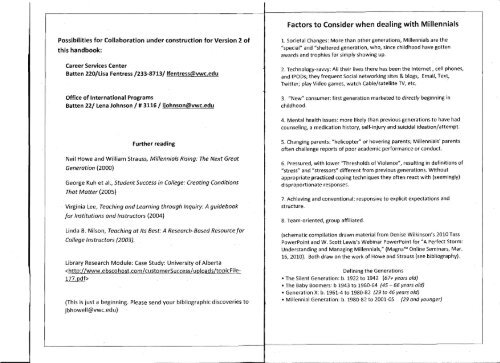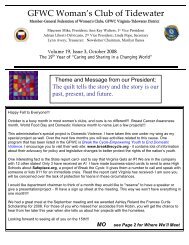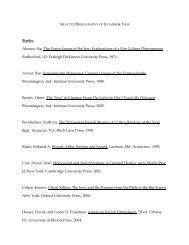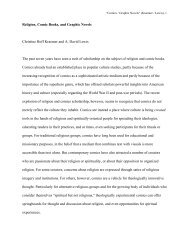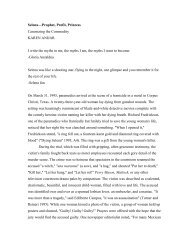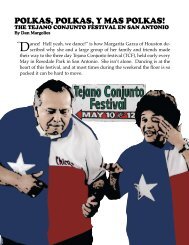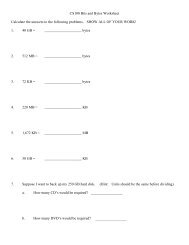Mini Handbook - VWC: Faculty/Staff Web - Virginia Wesleyan College
Mini Handbook - VWC: Faculty/Staff Web - Virginia Wesleyan College
Mini Handbook - VWC: Faculty/Staff Web - Virginia Wesleyan College
Create successful ePaper yourself
Turn your PDF publications into a flip-book with our unique Google optimized e-Paper software.
Possibilities for Collaboration under construction for Version 2 of<br />
this handbook:<br />
Career Services Center<br />
Batten 220/Lisa Fentress /233-8713/lfentress@vwc.edu<br />
Office of International Programs<br />
Batten 22/lena Johnson / # 3116/ljohnson@vwc.edu<br />
Further reading<br />
Neil Howe and William Strauss, Millennials Rising: The Next Great<br />
Generation (2000)<br />
George Kuh et aL, Student Success in <strong>College</strong>: Creating Conditions<br />
That Matter (2005)<br />
<strong>Virginia</strong> Lee, Teaching and Learning through Inquiry: A guidebook<br />
for Institutions and Instructors (2004)<br />
Linda B. Nilson, Teaching at Its Best: A Research-Based Resource for<br />
<strong>College</strong> Instructors (2003).<br />
Library Research Module: Case Study: University of Alberta<br />
<br />
is just a beginning. Please send your bibliographic discoveries to<br />
jbhowell@vwc.edu)<br />
Factors to Consider when dealing with Millennials<br />
1. Societal Changes: More than other generations, Millennials are the<br />
"special" and "sheltered generation, who, since childhood have gotten<br />
awards and trophies for simply showing up.<br />
2. Technology-savvy: All their lives there has been the Internet, cell phones,<br />
and IPODs; they frequent Social networking sites & blogs, Email, Text,<br />
Twitter; play Video games, watch Cable/satellite TV, etc,<br />
3. "New" consumer: first generation marketed to directly beginning in<br />
childhood.<br />
4. Mental health issues: more likely than previous generations to have had<br />
counseling, a medication history, self-injury and suicidal ideation/attempt.<br />
5. Changing parents: "helicopter" or hovering parents; Millennials' parents<br />
often challenge reports of poor academic performance or conduct.<br />
6. Pressured, with lower ItThresholds of Violence", resulting in definitions of<br />
Itstress" and Itstressorslt different from previous generations. Without<br />
appropriate practiced coping techniques they often react with (seemingly)<br />
disproportionate responses.<br />
7. Achieving and conventional: responsive to explicit expectations and<br />
structure.<br />
8. Team-oriented, group affiliated.<br />
(schematic compilation drawn material from Denise Wilkinson's 2010 Tass<br />
PowerPoint and W. Scott Lewis's <strong>Web</strong>inar PowerPoint for itA Perfect Storm:<br />
Understanding and Managing Millennials," (Magna Online Seminars, Mar.<br />
16, 2010). Both draw on the work of Howe and Strauss (see bibliography).<br />
the Generations<br />
• The Silent Generation: b. 1922 to 1942 (67+ years<br />
• The Baby Boomers: b 1943 to 1960-64 (45 - 66 years old)<br />
• Generation X: b. 1961-4 to 1980-82 (29 to 46 years old)<br />
• Millennial Generation: b. 1980-82 to 2001-05 (29 and younger)


